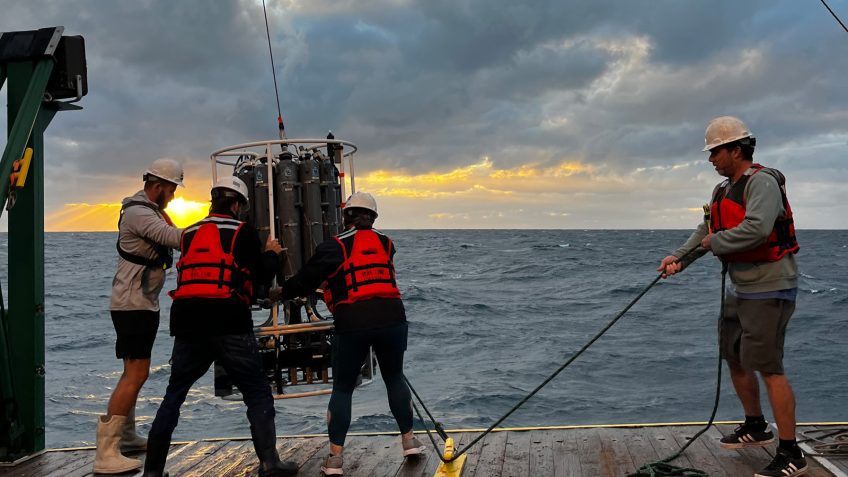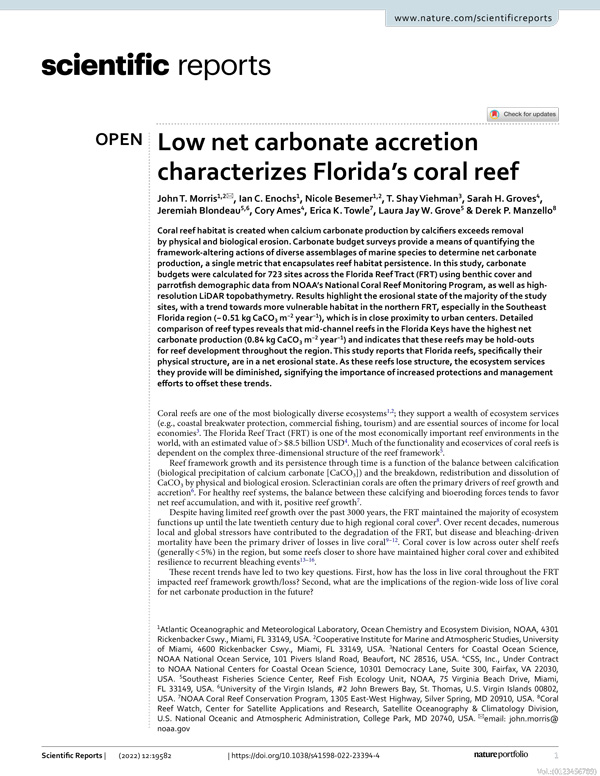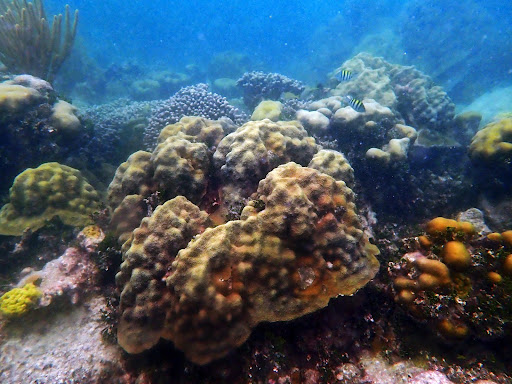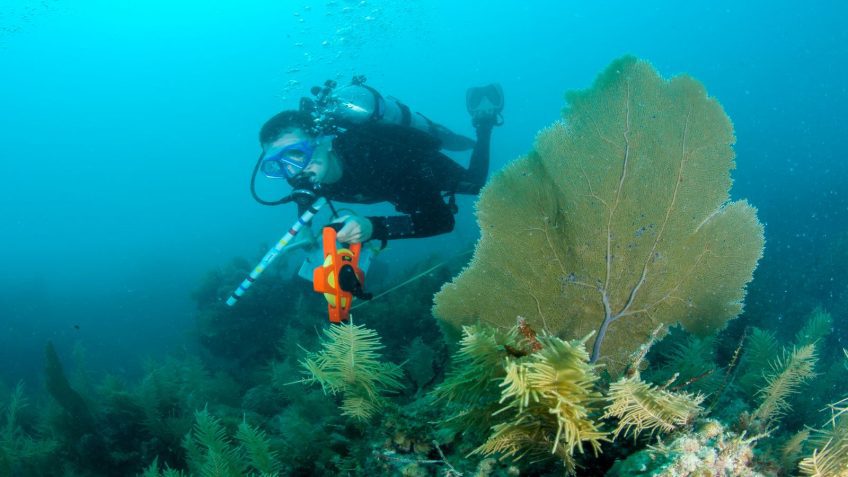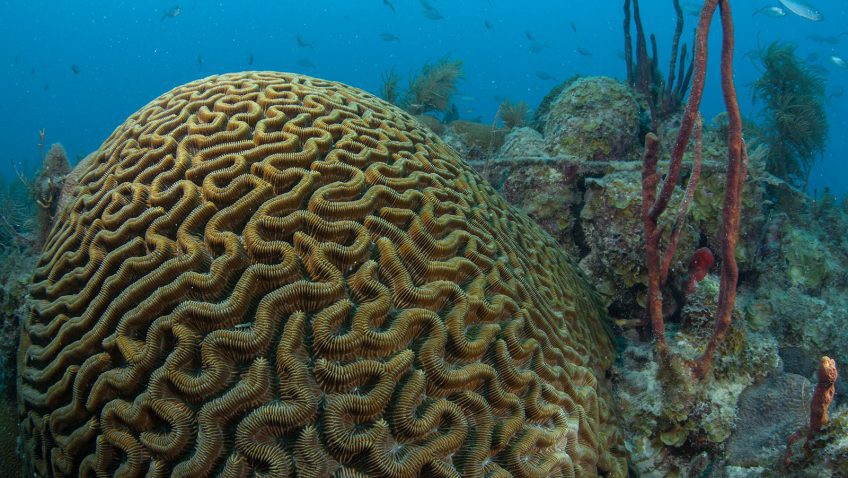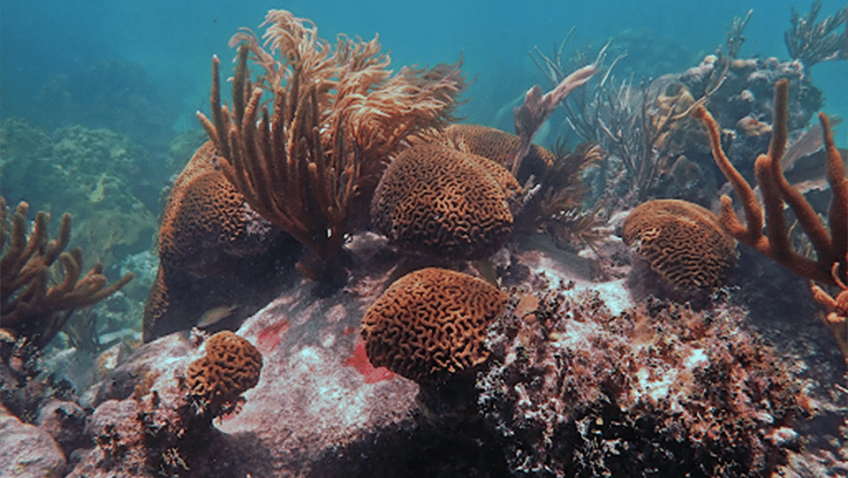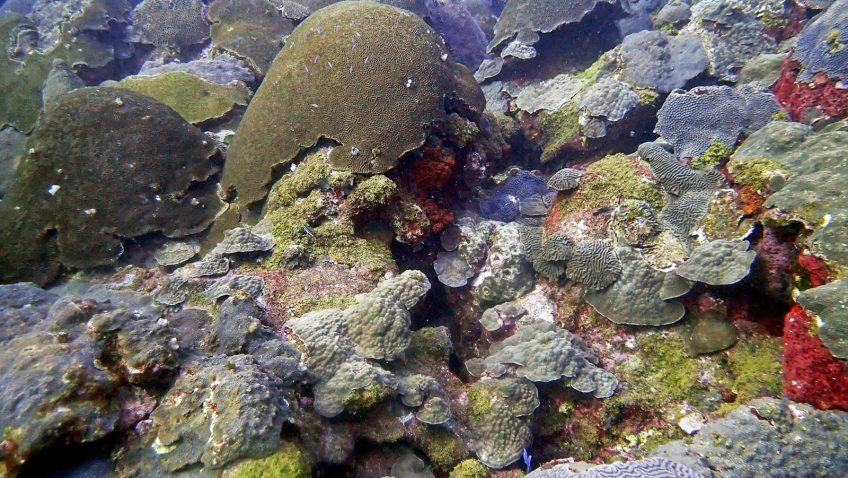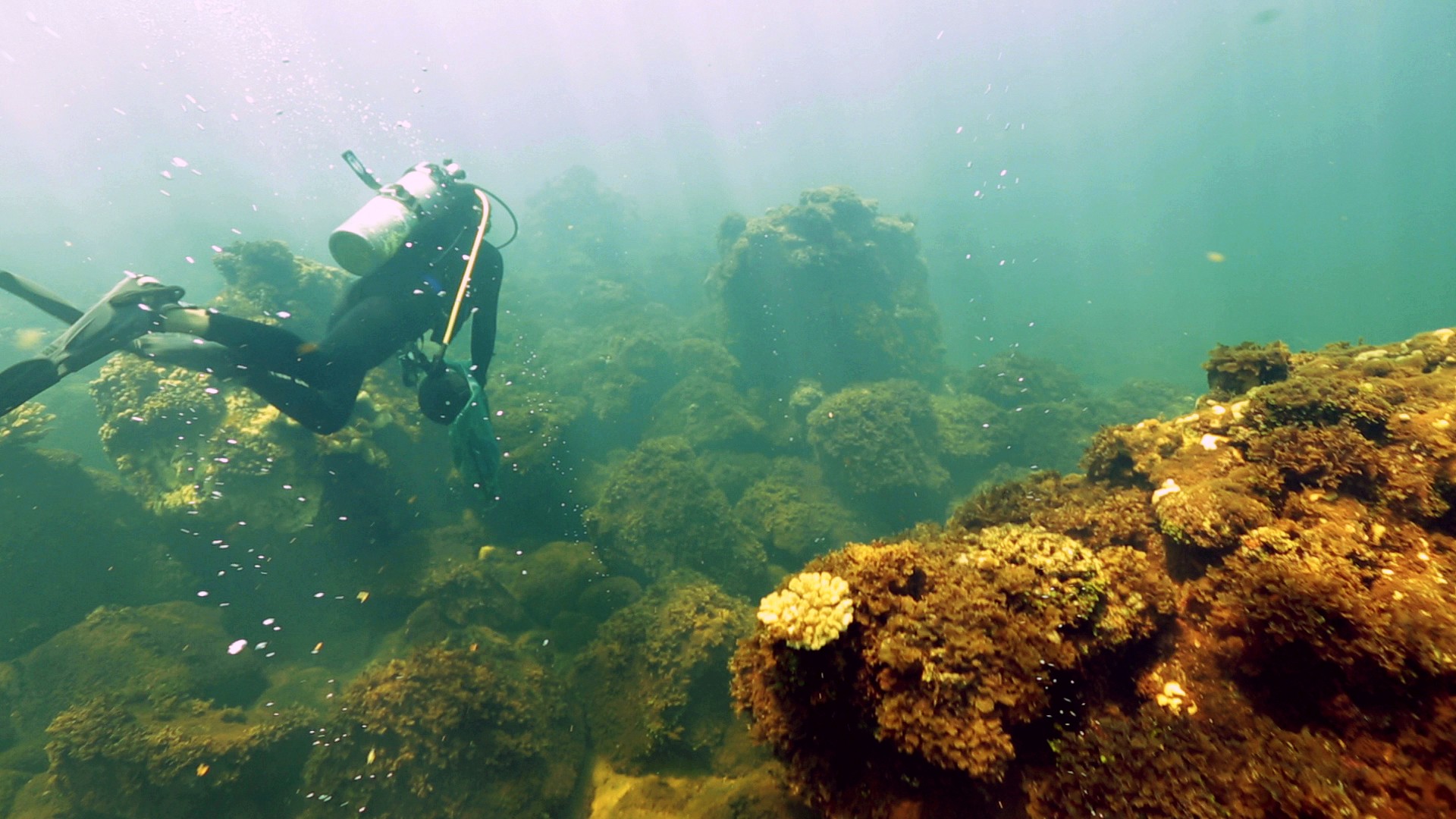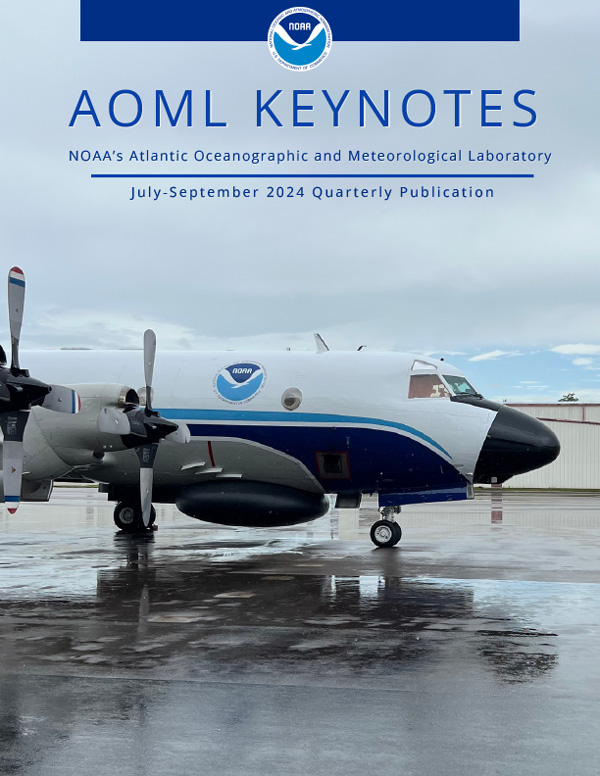John T. Morris, Ian C. Enochs, et al.
Coral reef habitat is created when calcium carbonate production by calcifiers exceeds removal by physical and biological erosion. Carbonate budget surveys provide a means of quantifying the framework-altering actions of diverse assemblages of marine species to determine net carbonate production, a single metric that encapsulates reef habitat persistence. In this study, carbonate budgets were calculated for 723 sites across the Florida Reef Tract (FRT) using benthic cover and parrot fish demographic data from NOAA’s National Coral Reef Monitoring Program, as well as high resolution LiDAR topobathymetry. Results highlight the erosional state of the majority of the study sites, with a trend towards more vulnerable habitat in the northern FRT, especially in the Southeast Florida region (− 0.51 kg CaCO3m−2 year−1), which is in close proximity to urban centers. Detailed comparison of reef types reveals that mid-channel reefs in the Florida Keys have the highest net carbonate production (0.84 kg CaCO3 m−2 year− 1) and indicates that these reefs may be hold-outs for reef development throughout the region. This study reports that Florida reefs, specifically their physical structure, are in a net erosional state. As these reefs lose structure, the ecosystem services they provide will be diminished, signifying the importance of increased protections and management efforts to offset these trends.
Download the full paper
